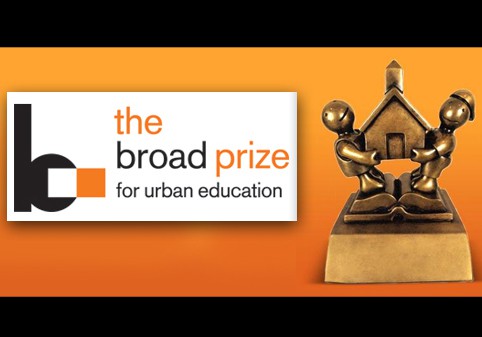Broad Suspends Prize and Personalized Learning

Prizes can be a super efficient philanthropic strategy when they mobilize talent and resources toward a compelling goal (see prize paper). A well structured prize gains 10:1 leverage, a great prize may achieve more than 100:1 leverage — meaning competitors invest 100 times the prize purse in an attempt to win. At inception, in 2002, the Broad Prize for Urban Education probably did that. The $1 million prize energized and aligned the work of urban districts around a thoughtful framework of outcomes and improvement strategies.
This week, as reported by the New York Times, the Broad Foundation suspended the prize. A distinguished panel of judges said, “It had become more difficult to identify school districts that were pushing test scores or graduation rates up.”
For the first decade, the Broad Prize was a sound philanthropic investment. But the prize outlived its life and no longer provided the leverage a good prize should. RIP Broad Prize. And congrats to the well deserving (mostly sun belt) districts that won the prize.
The judge’s observation is disturbing and suggests deep structural problems in America’s cities and the way public education has been delivered. “There’s no real urban system in the country that any of us would regard as better than mediocre,” said Frederick Hess, Director of Education Policy Studies at the American Enterprise Institute.
However, there appears to be an emerging formula for next generation learning as outlined in our new book Smart Cities That Work for Everyone.
Pulling the plug on personalized. As promising as next-gen learning is, the Broad Foundation also began notifying grantees this month that they would no longer support personalized and blended learning. Because the sector is in the early innings of incorporating new tools into engaging and powerful learning environments, this is an incredibly unfortunate development.
Beginning in 2013, Broad had joined Gates and Dell in spreading the well regarded Next Generation Learning Challenges framework to cities around the country. The new and transformed school grant programs were launched in D.C., New Orleans, Chicago and Denver.
These NGLC grants are supporting the most important work in America. We had the chance to track 14 NGLC winning teams as they planned next-gen environments.
Some may regard the $2 billion invested in EdTech startups last year as sufficient, but there remains enormous philanthropic need to design new learning environments that work better for students and teachers. That won’t come from the private sector.
Broad’s grant to Michigan’s Education Achievement Authority was brave and insightful. It supported a new approach to comprehensive support for failing schools, a new school model, and a new learning platform. It sounds like Broad will continue to support takeover districts (e.g., MI EAA, TN ASD, LA RSD) but not next-gen learning. That’s a shame given the talented team assembled and the promising early work they support.
Broad was the only national funder supporting Course Access, state programs and policies providing part time access to online learning. This is particularly promising to extend access to college prep, world language, and CTE courses. We appreciate Louisiana’s innovative approach to course access and saw promising efforts in a half a dozen other states.
We’re in the early years of the most important transition in human history–where public delivery systems fully embrace the potential of anywhere anytime learning. In the next ten years we could do what no one thought possible in urban America, Nairobi slums and Rio favelas–to provide a quality education for every student. I appreciate Broad’s support for leadership development and better public policy, but they’re leaving the revolution just when it’s getting interesting.
For more on personalized learning, check out:







0 Comments
Leave a Comment
Your email address will not be published. All fields are required.